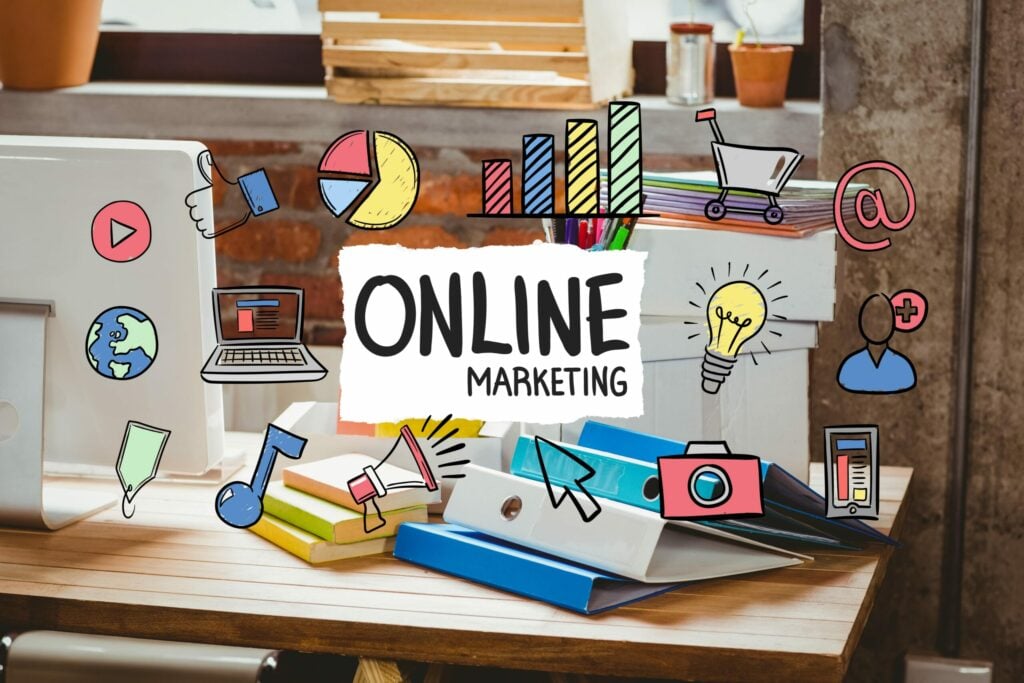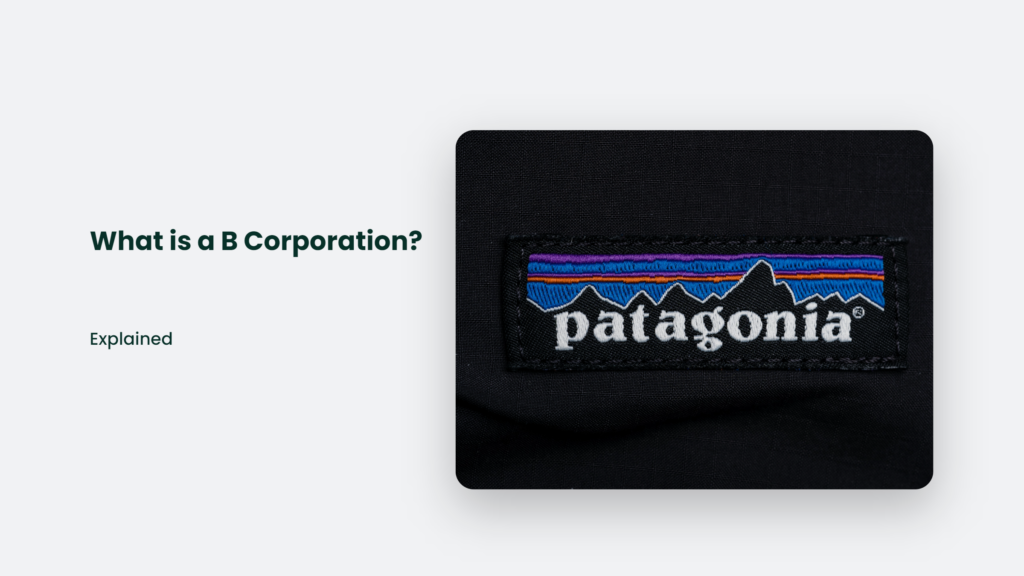
What is a B Corporation? Explained
As Seen On
So, you want to know what a B Corporation is? Well, grab a drink, put your feet up, and get ready to have your mind blown harder than a virgin on prom night.
A New Type of Business: What is a B Corporation
A B Corporation (also known as a benefit corporation) is a new kind of business that uses the power of capitalism to solve social and environmental problems. Unlike regular C Corporations, which exist solely to maximize profits, B Corps are legally required to consider the impact of their decisions on their workers, customers, suppliers, community, and the environment.
B Corps are like a hot nerdy girl – they’ve got brains and a heart.
These companies want to make banks while making the world less sh*tty. They aim to turn a profit while being socially and environmentally responsible. B Corps are certified by the nonprofit B Lab to meet rigorous social and environmental performance standards, accountability, and transparency.
So, if you’re an entrepreneur who wants to do good while doing well, a B Corp may be for you.

The Origin Story
The concept of a B Corp was developed in 2006 by B Lab, a nonprofit organization founded by three businessmen who wanted to use business as a force for good.
They were tired of seeing businesses act like douchebags just to make an extra buck. So, they created a legal framework and certification process for companies that want to consider society and the environment in addition to profit.
B Lab sounds like a bunch of hippies, but they knew how to get sh*t done. They lobbied state legislatures across the US to pass benefit corporation legislation.
The legislation created the legal designation and protection for companies to pursue social and environmental good. By 2015, over 30 states had passed benefit corporation legislation.
Once the legal framework was in place, B Lab launched the B Corp certification in 2007. It gave companies an independent standard to verify their commitment to stakeholders beyond just shareholders.
To get B Corp certified, companies must assess their impact on workers, community, environment and customers. They also amend their legal governing documents to require consideration of those stakeholders.
Over 4,000 certified B Corps are now across 150 industries in 80 countries. Well-known brands like Patagonia, Ben & Jerry’s, Seventh Generation and Etsy are B Corps.
Why Become a B Corp?
So why would a company choose to become a B Corp and get certified? Here are some of the main benefits:
- Attract talent: Becoming a B Corp helps companies attract and retain talented millennial and Gen Z employees who care about purpose. 65% of millennials say they won’t work for a company that doesn’t have strong social or environmental commitments.
- Build trust: In the age of woke consumers, B Corp certification shows customers your business is committed to ethics and stakeholder accountability. Consumers are 4.5x more likely to trust B Corps.
- Protect mission: Amending governing documents to require consideration of social/environmental impact legally protects the company’s mission through leadership changes or acquisition.
- Access capital: A new class of impact investors are directing funds to businesses with a social/environmental mission. B Corp certification helps attract values-aligned capital.
- Benchmark performance: The B Corp assessment provides a benchmark for companies to measure their social and environmental performance over time.
- Network and collaborate: B Corps gain access to a community of like-minded businesses to network, share best practices and collaborate with.
- Build brand: B Corp certification differentiates companies in a crowded market and affirms their brand values.
- Lead a movement: B Corps are part of a global movement using business as a force for good. How cool is that?
The B Corp Community
Once certified, B Corps gain access to an exclusive club of over 4,000 companies worldwide committed to business as a force for good.
B Lab runs regular regional events to facilitate collaboration, networking and knowledge sharing between B Corps. There is also an online community platform.
Some examples of how B Corps support each other:
- Referring to customers and suppliers
- Beta testing new products/services.
- Giving input on improving social/environmental impact
- Sharing best practices
- Partnering on advocacy campaigns
The B Corp community amplifies the collective impact of individual companies. B Corps leverages its networks and expertise to accelerate positive change.
Is B Corp Right For You?
Becoming a certified B Corp isn’t right for every company – it requires a real commitment to social and environmental performance beyond just profits.
Before pursuing B Corp certification, make sure to consider:
- Costs: Certification and ongoing compliance require an investment of time and money. Estimate the internal and external costs.
- Legal obligations: Amending governing documents is a big legal step requiring owner/shareholder approval. Make sure they are supportive.
- Reporting requirements: Certified B Corps must publicly share their assessment score and let B Lab publish a review summary. Ensure you’re ready for transparency.
- Performance rigour: Meeting the minimum assessment score of 80/200 takes real effort. Assess your current policies and impact to see if you’re ready.
- Mission alignment: Becoming a B Corp only makes sense if your company is already committed to a social/environmental purpose beyond profits.
Interested in exploring if B Corp certification is a good fit for your company? Take the free B Impact Assessment to benchmark your current impact and performance.
Examples of well-known B Corporations:
Food and Beverage B Corps
- Ben & Jerry’s
- Danone North America
- King Arthur Baking Company
- New Belgium Brewing Company
- Numi Organic Tea
Ben & Jerry’s is perhaps the most famous B Corp in the food and beverage industry. The quirky ice cream company has always had a strong social mission and became a certified B Corp in 2012.
Apparel and Accessory B Corps
- Athleta
- Cotopaxi
- Patagonia
- prAna
- TOMS
Patagonia is a pioneer B Corp within the apparel industry. Their mission is to “build the best product, cause no unnecessary harm, and use business to inspire solutions to the environmental crisis.”
Personal Care and Beauty B Corps
- Beautycounter
- Dr. Bronner’s
- The Honest Company
- Seventh Generation
Dr. Bronner’s, known for its iconic castile soaps, has been a leader in ethical business practices since its founding in 1948. The company became an official B Corp in 2015.
Other Notable B Corps
- Allbirds
- Etsy
- Kickstarter
- Warby Parker
Kickstarter, the crowdfunding platform, became a certified B Corp in 2021. They meet rigorous standards for ethical business practices and have a charitable arm called Kickstarter.org.The B Corp movement encompasses companies of all sizes and industries committed to using business as a force for good. There are many inspiring examples to discover.
Frequently Asked Questions:
Do B Corps have to be nonprofits?
No, B Corps are regular for-profit companies, just with additional social/environmental obligations. Many successful for-profit companies have become B Corps.
Can companies pick and choose which stakeholders to focus on?
No, to be certified B Corps have to consider the impact on all their workers, customers, community, environment and suppliers. No cherry picking allowed.
The Bottom Line:
The B Corp movement represents an inspiring shift in the purpose of business. These certified B Corporations embrace the opportunity to lead with their values and leverage the power of capitalism to solve social and environmental problems.
Becoming a B Corp is not easy. It requires meeting rigorous standards of social and environmental performance, accountability and transparency.
But the companies that commit to the journey discover it brings many benefits – from attracting purpose-driven talent to building consumer trust to protecting their mission. They also join a community of leaders who empower each other to have a greater impact.
The rise of B Corps reflects the evolving expectations of stakeholders for businesses to consider their full impact on workers, customers, community and the environment – not just shareholders.
More consumers, investors and employees want to associate with companies that share their values. More entrepreneurs want to build businesses that reflect their purpose.
The B Corp movement offers a framework for companies ready to step up as leaders of this economic shift towards stakeholder capitalism.
By harnessing the power of business to solve social problems, B Corps represent the future of responsible business. They set an example for all companies to consider their full impact on society.
Ready to explore if the B Corp path is right for your company’s journey? Take the first step by checking out the B Impact Assessment at bimpactassessment.net. The B Corp community is cheering you on.
Gracie Jones
Up until working with Casey, we had only had poor to mediocre experiences outsourcing work to agencies. Casey & the team at CJ&CO are the exception to the rule.
Communication was beyond great, his understanding of our vision was phenomenal, and instead of needing babysitting like the other agencies we worked with, he was not only completely dependable but also gave us sound suggestions on how to get better results, at the risk of us not needing him for the initial job we requested (absolute gem).
This has truly been the first time we worked with someone outside of our business that quickly grasped our vision, and that I could completely forget about and would still deliver above expectations.
I honestly can’t wait to work in many more projects together!
Disclaimer
*The information this blog provides is for general informational purposes only and is not intended as financial or professional advice. The information may not reflect current developments and may be changed or updated without notice. Any opinions expressed on this blog are the author’s own and do not necessarily reflect the views of the author’s employer or any other organization. You should not act or rely on any information contained in this blog without first seeking the advice of a professional. No representation or warranty, express or implied, is made as to the accuracy or completeness of the information contained in this blog. The author and affiliated parties assume no liability for any errors or omissions.

